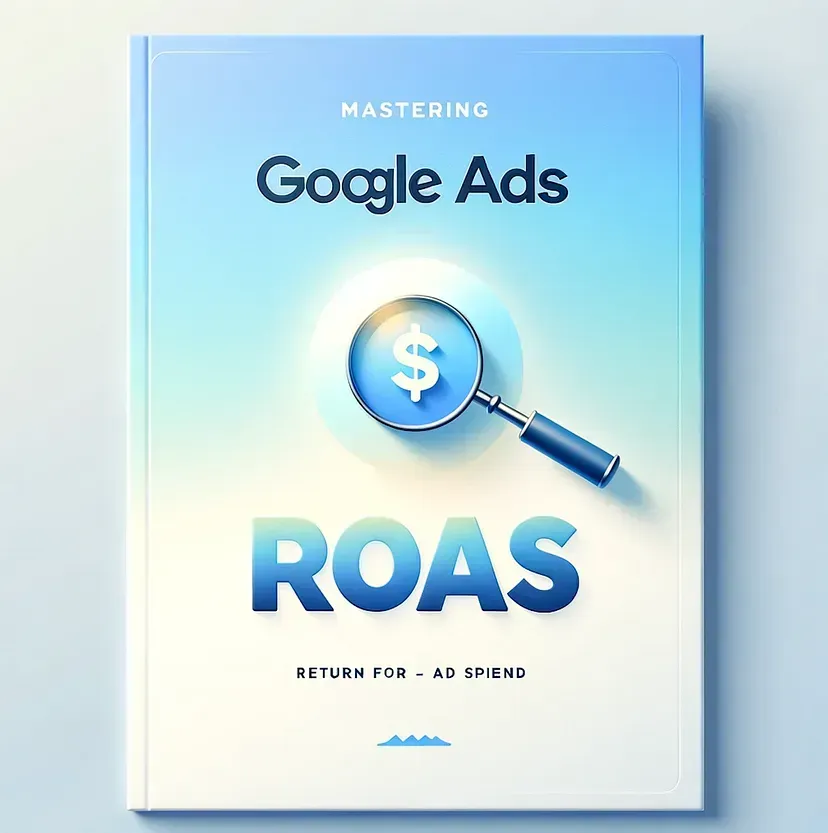The Future of Digital Marketing: Balancing SEO with Ad Buying
Digital marketing is a constantly evolving field, and staying ahead of the game is crucial for businesses looking to succeed in the online world. In today's competitive landscape, finding the right balance between SEO and ad buying is key to reaching your target audience effectively. In this article, we will explore the current digital marketing landscape, the role of SEO and ad buying, their evolution, and provide you with tips and strategies to prepare for the future.
Understanding the Current Digital Marketing Landscape
As technology continues to advance, the digital marketing landscape is becoming increasingly complex. With millions of websites competing for attention, it's no longer enough to simply have a website and hope for the best. Businesses need to understand how to navigate this vast digital world to maximize their visibility and drive targeted traffic to their sites.
In today's digital age, consumers are bombarded with information from various sources. From social media platforms to search engine results, the competition for attention is fierce. To stand out in this crowded space, businesses must have a comprehensive digital marketing strategy that encompasses various tactics and channels.
One of the key components of any successful digital marketing strategy is Search Engine Optimization (SEO). SEO plays a crucial role in improving a website's visibility in search engine results. By optimizing your website and content for search engines, you can improve your organic search rankings and increase your chances of being found by potential customers.
The Role of SEO in Digital Marketing
Search Engine Optimization (SEO) plays a crucial role in digital marketing. By optimizing your website and content for search engines, you can improve your organic search rankings and increase your visibility in search results. SEO involves various strategies, such as keyword research, on-page optimization, and link building, all aimed at improving your website's relevance and authority in the eyes of search engines.
Keyword research is an essential aspect of SEO. By identifying the keywords and phrases that your target audience is using to search for products or services, you can optimize your website's content to align with those search queries. This helps search engines understand the relevance of your website to specific search terms, increasing the likelihood of your website appearing in relevant search results.
In addition to keyword research, on-page optimization is another crucial aspect of SEO. This involves optimizing the various elements of your website, such as meta tags, headings, and URLs, to make them more search engine-friendly. By structuring your website in a way that search engines can easily crawl and understand, you can improve your chances of ranking higher in search results.
Link building is another important strategy in SEO. By acquiring high-quality backlinks from reputable websites, you can improve your website's authority and credibility in the eyes of search engines. This can have a positive impact on your search rankings and increase your visibility in search results.
The Impact of Ad Buying in Digital Marketing
While SEO is essential for long-term success, ad buying offers businesses the opportunity to achieve immediate results. With ad buying, you can place targeted advertisements on various platforms, including search engines and social media sites. This allows you to reach a wider audience and drive traffic to your website quickly. However, it's important to note that ad buying can be costly, and without a strategic approach, it can lead to wasted spending.
When it comes to ad buying, it's important to have a clear understanding of your target audience and their online behavior. By identifying the platforms and channels that your target audience frequents, you can tailor your ad campaigns to reach them effectively. This can help you maximize your return on investment and ensure that your ads are seen by the right people at the right time.
In addition to targeting the right audience, ad buying also requires careful monitoring and optimization. By analyzing the performance of your ad campaigns, you can identify areas for improvement and make necessary adjustments to maximize their effectiveness. This may involve tweaking your ad copy, adjusting your targeting parameters, or testing different ad formats to find what works best for your business.
Furthermore, it's important to consider the overall user experience when implementing ad buying strategies. While driving traffic to your website is important, it's equally important to ensure that visitors have a positive experience once they land on your site. This includes having a user-friendly website design, relevant and engaging content, and clear call-to-actions to guide visitors towards desired actions, such as making a purchase or filling out a contact form.
In conclusion, understanding the current digital marketing landscape is crucial for businesses looking to succeed in today's competitive online environment. By incorporating strategies like SEO and ad buying into your digital marketing efforts, you can increase your visibility, drive targeted traffic to your website, and ultimately, achieve your business goals.
The Evolution of SEO and Ad Buying
Both SEO and ad buying have undergone significant changes over the years, reflecting the evolving digital marketing landscape.
The Changing Face of SEO
In the early days of SEO, keyword stuffing and questionable link building tactics were common practices. However, search engines have become smarter and more sophisticated, favoring high-quality content and user experience over manipulation techniques. Today, SEO is more about delivering value to the user and creating a seamless online experience.
Ad Buying in the Modern Era
The rise of social media platforms and display advertising networks has transformed the way businesses approach ad buying. With advanced targeting options, businesses can now reach their desired audience with precision. Additionally, the availability of data and analytics provides valuable insights that can inform and optimize ad campaigns.
Balancing SEO and Ad Buying: A Strategic Approach
To make the most out of your digital marketing efforts, it's crucial to find the right balance between SEO and ad buying. Taking a strategic approach can help you achieve the best results.
The Importance of a Balanced Strategy
SEO and ad buying are not mutually exclusive; instead, they should work together harmoniously. SEO provides a sustainable foundation for long-term visibility, while ad buying offers quick wins and immediate exposure. By combining both strategies, you can maximize your reach and impact.
Key Considerations in Balancing SEO and Ad Buying
When balancing SEO and ad buying, there are a few key considerations to keep in mind:
- Understand your target audience: Knowing who your audience is and what they are looking for will help you tailor your SEO and ad buying strategies accordingly.
- Allocate resources effectively: Analyze your budget and time constraints to determine how much emphasis to place on SEO and ad buying.
- Analyze data and adjust strategies: Regularly monitor the performance of your SEO and ad campaigns, and make adjustments based on data-driven insights.
Predicting the Future of Digital Marketing
As digital marketing continues to evolve, it's essential to stay ahead of emerging trends to remain competitive. Here are two key areas to keep an eye on:
Emerging Trends in SEO
Voice search and mobile optimization are shaping the future of SEO. With the increasing popularity of smart speakers and mobile devices, optimizing your website for voice queries and ensuring mobile responsiveness are becoming essential.
The Future of Ad Buying
Data privacy and personalization will play a significant role in the future of ad buying. As consumers become more concerned about their privacy, businesses will need to find ways to provide personalized experiences while respecting user data and preferences.
Preparing for the Future: Tips and Strategies
As the digital marketing landscape continues to evolve, it's important to future-proof your strategies to stay ahead of the curve.
Adapting SEO Strategies for Future Success
Stay up to date with SEO trends and algorithm changes to ensure your website remains optimized for search engines. Focus on creating high-quality content, building authoritative backlinks, and providing exceptional user experiences.
Future-Proofing Your Ad Buying Approach
Invest in tools and technologies that allow you to target and track your ads effectively. Leverage data and analytics to optimize your campaigns continuously. Additionally, explore new platforms and channels to diversify your ad buying efforts.
In conclusion, finding the right balance between SEO and ad buying is essential for digital marketing success. By understanding the current digital marketing landscape, embracing the evolution of SEO and ad buying, and adopting a strategic approach, businesses can prepare for the future and stay ahead in the dynamic world of digital marketing.










